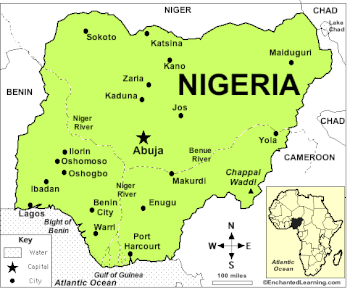|
In our training sessions and the materials we have created, we often speak of the vital importance of intimacy with the Lord. When this becomes a regular habit, the transformation created by God also becomes obvious to those around us. Priorities change, attitudes and conduct are shaped by these times with the Lord, and the reflection of Christ becomes clearer.
I am thinking particularly of one man who was much like most of us; proud, self-willed, and afraid of his own brother. Unlike the type of person I mentioned above, who makes it a regular habit of being close to the Lord, Jacob was so fearful of what his brother Esau would do to him for stealing his birthright, he divided his family into three groups and left them in the hands of his servants while he stayed overnight by himself (Genesis 32:13-21). This was a major crisis for Jacob. “And Jacob was left alone. And a man wrestled with him until the breaking of the day” (32:24). Jacob did not realize until well into the night that he was wrestling with God. That match changed Jacob forever! God changed his name from Jacob to Israel. He was going to become a new man “For I have seen God face to face, and yet my life has been delivered” (32:30). Should this be our expectation when we spend time alone in the presence of God? Transformation is not the only thing that happens in His presence, but it is perhaps the most important. Fellowship with divine persons is enjoyed most when we are willing to be changed into His likeness.
0 Comments
 “What a journey here in Nigeria, so full of challenges and sweet advancements of the gospel! I cannot thank you enough for the prayers and support that make this ministry possible. I have only been here one and a half weeks, but I have seen our Lord do more in these short days than many years of ministry. The key here is the people here in Nigeria. When people face the threats of persecution from Boko Haram and the Fulani people group, they study God's Word in depth, pray with passion and dialogue on truth in amazing ways. There is depth of insight mingled with unanswered questions all held together with a strong faith in God's sovereign plan for their lives. I have been amazed by the way they pray, and the way I pray in their meetings. Their faith inspires a white-hot faith that trusts God despite suffering. It seems I have been transported back to the prayer meeting of Acts 4:23-31 where the church prayed after Peter and John were interrogated and beaten. This kind of praying seeks strength in God's sovereignty and asks above all for boldness in the midst of persecution. No wonder God sweeps through a room like this and fills us with His Spirit, empowering us to "continue to speak the word of God with boldness.” After two days of flights and two more of land travel, we finally arrived at Iyola, near the border with Cameroon. My first meeting was to be in Gombe, but these plans changed just before I landed in Nigeria. We were asked to go further in one of the key headquarters of Boko Haram. Expecting to meet with a maximum number of 100 leaders, 160 showed up! We sent for more of our manuals, God's Plan for His Church, but the crowds kept growing on the second and third days, the crowd swelled to 260, all begging for more of God's Word. I plan to return in June. Now that I am back in Jos, I am working with around 65 leaders, and about two-thirds of them have finished our entire training course. They are asking hard questions about how to expand through church planting movements. I will be with them through Wednesday afternoon at which time I move on to Kogon River to meet another group of pastors and leaders. I could go on and on, but this is to be only a short update. Please continue to pray. Just like in the book of Acts, unified prayer from Christ's church empowers God's people to make huge advancements of the gospel.” Randy  There are very few relationships that are truly intimate and close. I am referring to those close ties where you share the deepest longings, joys and sorrows. Often we hide our innermost feelings because we do not experience a level of trust with other people with the confidence that they would not turn our trusts into an occasion to hurt us or gain some advantage for themselves. I am thinking of someone who spent six days in silence just to be with his special friend. Yes, I am speaking about Moses who “went up on the mountain, and the cloud covered the mountain. The glory of the Lord dwelt on Mount Sinai, and the cloud covered it six days” (Exodus 24:15-16). Usually when we are on mountain tops, we take in the vast vistas and beauty that surround us. For Moses, his majestic view was “the glory of the Lord.” Would that satisfy you? “On the seventh day He [the Lord] called to Moses out of the midst of the cloud.” So great was this moment for Moses that he stayed there “on the mountain forty days and forty nights” (24:18). It is obvious the Lord had great confidence in Moses, because during those forty days, God gave Moses the complete pattern for the tabernacle and how He was to be worshipped by Israel. God had a level of trust in Moses He had with no one else. This amazing insight was given to a man who wanted to be near God. He could not receive these instructions and still be with the crowd. Neither can we. Getting alone with God is where we receive what is precious, eternal, and what is close to God’s heart. Can He trust you with what is on His heart?  Many of us have thought of Saul’s conversion on the Damascus road and wondered what that “sudden…light from heaven” that shone around him was like. And then the voice of Jesus that spoke to him, “Saul, Saul, why are you persecuting Me?” That moment became transforming for self-important Saul into a Spirit-empowered Paul (Acts 9:1-19). Have you considered being blind and not eating or drinking for three days? Every distraction that clutters our minds would not be there. Even the smell of familiar food and refreshing water would not pass our lips. There would be no travelling from one place to another, no appointments or familiar sights and sounds. Just being alone with your memory of the last words of Jesus calling your name and asking the question, “why?” ‘What are you doing with your life?’ It is my opinion that each of us need times like this. There are several reasons why we need times of solitude where our hearts and minds are released from the constant ‘noise’ of this world so we can hear God speak to us. As with Saul, it will: 1. Change your character. 2. Change your values and priorities. 3. Change the direction of your life. 4. Change the outcomes of all you do to be fruitful. 5. Give you a clearer, eternal perspective. I urge you to consider such a time (without being blind)! At best, our time here is short, no matter how old we are. The work of God needs much greater attention and devotion than what we give it. And finally, we must consider more carefully whether we are doing all for the glory of God, the spreading of the gospel, and the building up of the Church.  Just like many Christians today, Peter was arrested and put in prison. James had been killed. “But earnest prayer for [Peter] was made to God by the church” (Acts 12:5). Those gathered at Mary’s home had no idea what was taking place in that prison where Peter was. Many times, our prayers reflect what we know rather than unwavering confidence that God knows. So often our prayers are influenced by the little we do know of situations rather than placing the whole circumstance in God’s hands and believing that His plan and purpose will be done, irrespective of how bad things look. God sent His angel to the prison where Peter was; “bound with two chains, and sentries before the door were guarding the prison” (12:6). Humanly, there was no possible way for Peter to escape or be rescued, except by divine intervention. What is striking about this scene is that “Peter was sleeping between two soldiers.” There was no anxiety in his heart, no pacing the floor, or any other sign of worry. He had experienced divine intervention in another way; changing the whole direction of his ministry from ministering only to Jews, to witnessing God opening the heart of Gentiles. Was he going to doubt God’s hand in this situation? When Peter was brought out of prison by the angel and arrived at Mary’s home, those gathered were still in earnest prayer for Peter and could not believe that he was standing at the entry. Do we pray expecting God to answer immediately? He does not always answer in that way, but if we know that it could be His will, should we not expect that there will be an immediate answer? We received a powerful prayer from one of our ‘prayer warriors’ expressing great confidence in God releasing Randy from a difficult and dangerous situation. We are waiting and continue to pray for him. Let’s continue to pray in earnest, with believing faith, and expectancy.  I have copied a couple of emails regarding Randy (below) who is currently in Nigeria and needs our prayers. (From Tim): “I got up this morning with Randy on my mind and heart, so I sent him an email to let him knowing that we are praying for him. Below is his response. As you read, keep in mind that Randy has been to a lot of dangerous places as we all have, but this is most serious. I might add that this is the headquarters for Boko Haram whose main goal is to "purify Islam in Northern Nigeria." Since their current insurgency in 2009, they have killed tens of thousands and displaced 2.3 million from their homes and are ranked as the world's deadliest terror group. Isn't it interesting that we so often find the greatest hunger where there is the greatest persecution, poverty, and suffering? Here is Randy's email:” “Tim, Thank you for the prayers. This is the most dangerous place I have ever been and the place with the most hunger for God’s Word! They have assigned a special guard to my hotel to watch out for me only, and they tell me never to come out of my room unless one of them has knocked on my door. And of course, I have no worries at all. Beyond all of this, people are more than eager to learn. We planned for 100 and 260 have shown up. We don’t have enough manuals and the people are begging for them. We always say it is not about numbers, and this is still true, but these numbers show how hungry the people are. Most missionaries never come here, but God has so blessed us to send us here. And I do mean US! We are all together in this great work! I am planning to come back the last week of June for a follow up after I finish three weeks at the seminary in Jos. Let us rejoice and let’s keep praying! Overwhelmed by God grace and love! Randy”  As I was thinking more on the subject of yesterday’s blog – A HOLY AMBITION, I began thinking about how God has gifted each member of the Body of Christ, the Church. 1 Corinthians 12 reminds us of the “variety of gifts, but the same Spirit and…the variety of service, but the same Lord” (12:4-5). Paul gives several lists in different letters he has written, but my point here is not to review each of these gifts, but to reminds us of how they are all divinely placed in the Church by the Lord and the Spirit. Their intent was that all the gifts function together “to equip the saints for the work of ministry, for building up the body of Christ” (Ephesians 4:11-12). This is the Spirit’s unity. It is difficult to understand why some in the Church think they do not have a gift or do not need to use the gift they have been given. Remember that “each [gift] is given the manifestation of the Spirit for the common good” through their gift (1 Corinthians 12:7). If I or you do not use the gift God has given us, we deprive the Body of Christ part of the variety He intended to be used so the whole body would grow and mature together; “built together into a dwelling place for God by the Spirit” (Ephesians 2:22). If you are not using your God-given gift, what does that say about your heart toward the Giver? What will you say to Him on that final day? “For we must all appear before the judgment seat of Christ, so that each one may receive what is due for what he has done in the body, whether good or evil” (2 Corinthians 5:10). What is your AMBITION?  “And thus, I make it my ambition to preach the gospel, not where Christ has already been named, lest I build on someone else’s foundation” (Romans 15:20). There was a westward movement of the gospel because of this holy “ambition” that propelled Paul. As He left the elders from Ephesus, he was even warned by the Holy Spirit not to go as he planned to Jerusalem because of the dangers to his life (Acts 21:11-12). Then he answered them, “What are you doing, weeping and breaking my heart? (13). The ‘warning’ was not like the “forbidden by the Holy Spirit” in Acts 16:6. The ambition of Paul’s heart was so strong that nothing could possibly stop this servant from his goal. Remember, he told those in Ephesus, “after I have been there (Jerusalem), I must also see Rome” (19:21). The work in Asia Minor was finished as far as Paul was concerned (Romans 15:23). Then he writes the believers in Rome; “I hope to see you in passing as I go to Spain” (15:24). His heart and ambition kept pushing this beloved servant westward with the gospel. He never thought Rome would be his final destination. Do we have a “Holy Ambition” as John Piper calls it, that drives every ounce of energy, every plan, no matter what the objections and obstacles are? Paul would not turn from this ambition until it was fulfilled. It is no wonder he accomplished so much in his short missionary work of about 10 years. Let us take this challenge very personally. If our ambitions are earth bound, they will never accomplish heavens goals.  Over many years I have preached the gospel of Jesus Christ in many settings. From the streets of big cities to small churches with only a handful of people; in conversations with individuals to groups in unexpected places. In many of these places I have experienced hostility from some, but also tears of thanksgiving from others. What are we to expect? Paul experienced even a greater range of response. “Jews came from Antioch and Iconium and having persuaded the crowds, they stoned Paul and dragged him out of the city, supposing that he was dead” (Acts 14:19). When Cornelius met Peter, he “fell at his feet and worshipped him,” which Peter had to correct quickly. These extremes should not surprise us given the world we live in. Consider how Paul describes the rejections to the gospel. “The word (preaching) of the cross is folly to those who are perishing, but to us who are being saved it is the power of God” (1 Corinthians 1:18). Notice the two reactions in this verse that I mentioned above. Rejection comes from hearts on which God has not worked yet. Their foolish hearts are darkened through rejection of the gospel (Romans 1:21) as is their understanding (Ephesians 4:18). On the other side of this issue is the power of God that works in those who believe. To them, “Christ is the power of God” (1 Corinthians 1:24). He “opens their eyes, so that they may turn from darkness to light and from the power of Satan to God, that they may receive forgiveness of sins and a place among those who are sanctified by faith in me” (Acts 26:18). Let us faithfully preach the message of the cross. IT IS POWERUL!  Charles Colson once said, “The Bible is banned, burned, beloved. More widely read, more frequently attacked than any other book in history. Generations of intellectuals have attempted to discredit it; dictators of every age have outlawed it and executed those who read it. Yet soldiers carry it into battle believing it is more powerful than their weapons. Fragments of it smuggled into solitary prison cells have transformed ruthless killers into gentle saints. Pieced together scraps of Scripture have converted whole villages of pagan Indians.” This reminds me of Jesus words in one of His final sermons; “Heaven and earth will pass away, but My words will not pass away” (Matthew 24:35; Mark 13:31; Luke 21:33). Authors come and go and are forgotten. Money and possessions are gathered, spent, stolen and given away. The character of the Bible is such that nothing in this world can change its quality or power because “Forever, O Lord, Your word is firmly fixed in the heavens” (Psalm 119:89). David says, “Therefore I love your commandments above gold, above fine gold.” (Psalm 119:127). If you were to write on a piece of paper what God’s Word means to you, what would you say? Would that be proved by the way you live before others and in private? This needs serious thought. |
Archives
December 2023
Link To Our Old Blog:
|

 RSS Feed
RSS Feed